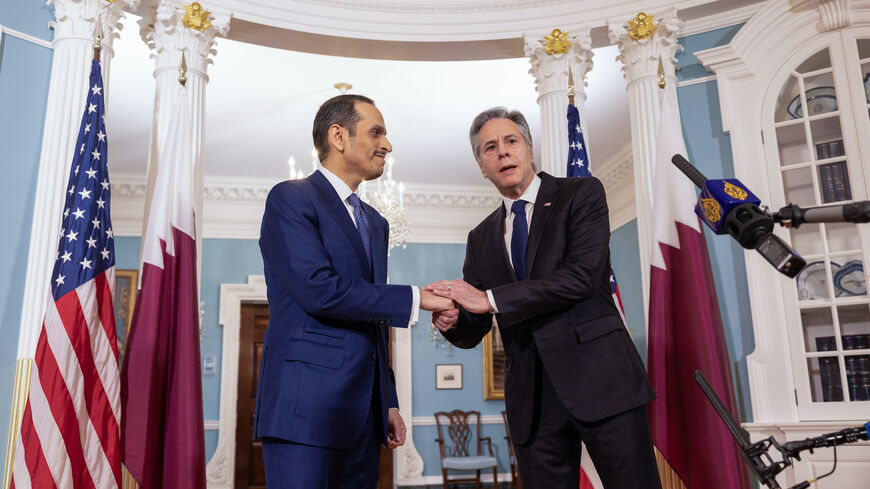Qatar tells Hamas leaders to leave as Gaza cease-fire talks deadlocked
The Biden administration sees the militant group's presence in Qatar as "no longer viable or acceptable" given its repeated refusal to release even a small number of the remaining hostages.

WASHINGTON — At the request of the United States, Qatar has told Hamas to leave the country following the Palestinian militant group’s rejection of another hostage release proposal, multiple Biden administration officials told Al-Monitor.
Along with Egypt, Qatar has facilitated the indirect negotiations between Israel and the militants over a possible cease-fire and hostage deal in the Gaza Strip. On Monday, the State Department said that Hamas has rejected the latest proposal for a short-term truce in the Palestinian territory, where Israel’s 13-month military campaign is estimated to have killed more than 43,000 people.
A senior Biden administration official said the Gulf state played "an invaluable role" in helping secure last year's release of nearly 200 people abducted on Oct. 7, but Hamas' continued presence in the country was "no longer viable or acceptable" given its repeated refusal to release even a small number of the remaining 101 hostages, at least one third of whom are presumed dead.
"After rejecting repeated proposals to release hostages, its leaders should no longer be welcome in the capitals of any American partner," the official said.
The United States asked Qatar to expel Hamas about two weeks ago, and the Qataris gave the group notice shortly after.
“It wasn’t an ask,” a second US official said. “The message relayed to Hamas from Qatar was essentially 'pack your bags and get out.'”
Qatar frequently acts as an intermediary for the United States and its adversaries, including Russia and Iran, as well as regional Islamist movements. The gas-rich country has hosted Hamas’ self-exiled political leadership since they left their headquarters in Damascus, Syria, in 2012.
Qatari officials maintain they received Hamas at the request of the Obama administration so that indirect lines of communication could be established with the Palestinian militant group. The Biden administration has until now resisted asking Doha to shutter Hamas’ political office, fearing the potential impact on cease-fire negotiations should the group relocate to an adversarial country, such as Iran.
As the hostage talks faltered earlier this year, congressional Republicans and some Democrats accused Qatar of failing to leverage its relationship with the US-designated terrorist group. In a letter to Secretary of State Antony Blinken and Attorney General Merrick Garland on Monday, a group of 14 Senate Republicans called for the extradition of Doha-based Hamas leader Khaled Meshaal and for the administration to "ask Qatar to end its hospitality of Hamas’ senior leadership.”
Three US officials said the exiled Hamas officials were most likely to move to Iran, which is the group’s biggest financial and military backer, and Turkey, which has long welcomed Hamas political figures.
Basem Naim, a senior Hamas official based in Doha, told Al-Monitor he was not aware of the reports. A representative for the Qatari Embassy in Washington did not return a request for comment.







